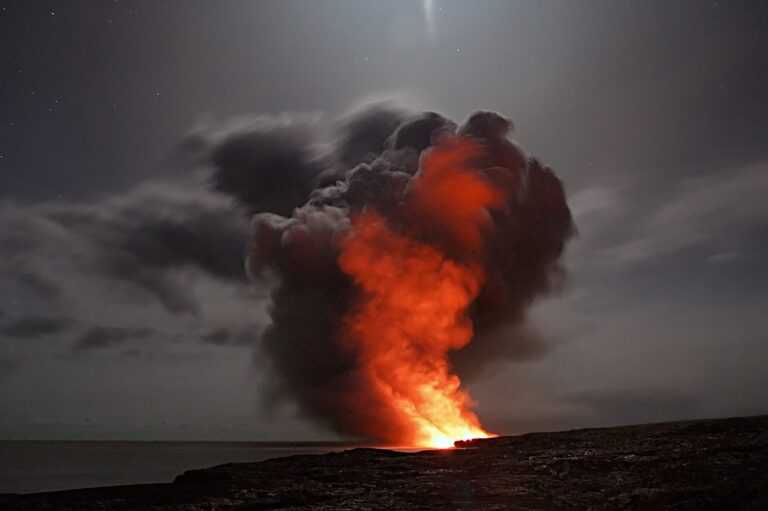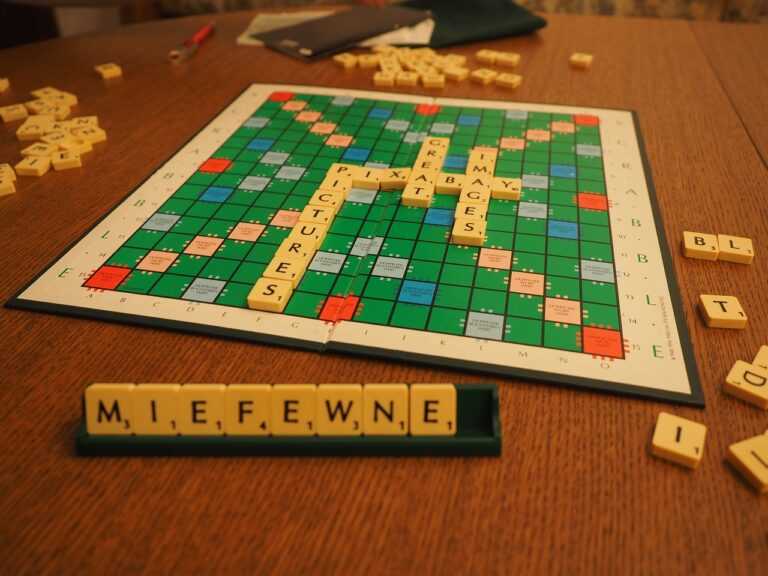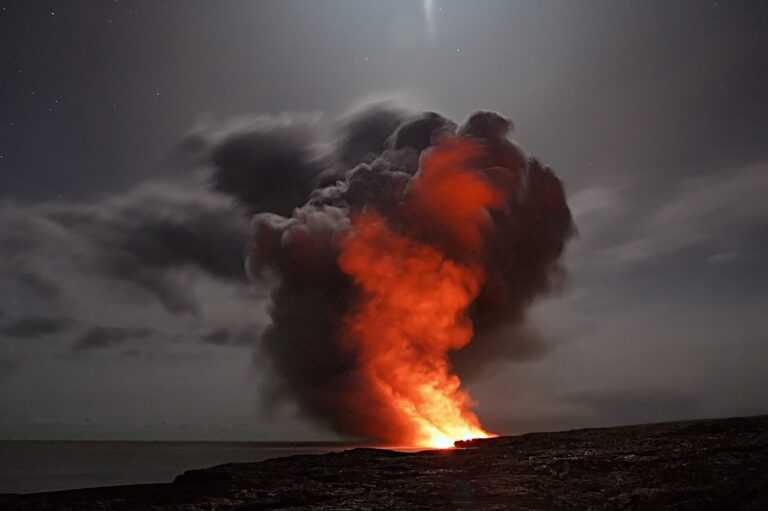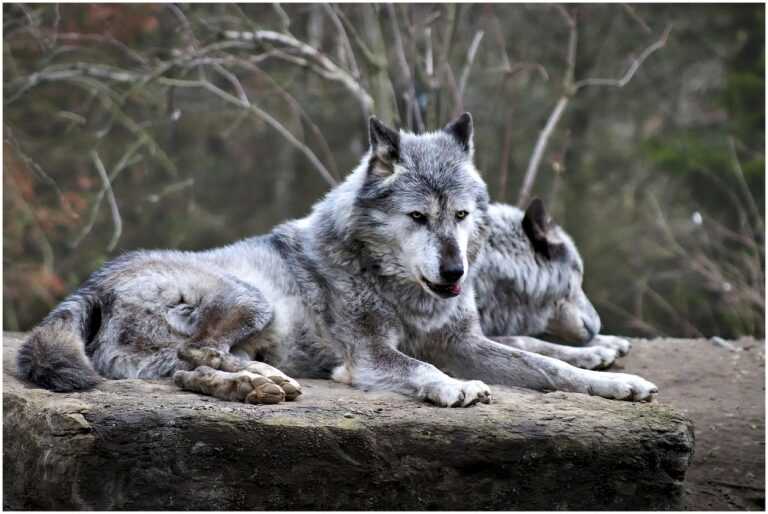There’s something thrilling about plunging into the dark world of horror games, especially when the lights are off. It heightens every jump scare and eerie sound, making each moment feel more intense.
As a fan of spine-chilling experiences, I’ve discovered some unforgettable titles that’ll keep you on the edge of your seat, heart racing and palms sweating. In this article, I’ll share my top picks for horror games that are perfect for those late-night gaming sessions.
Whether you’re a seasoned horror aficionado or just looking to dip your toes into the genre, these games promise to deliver a haunting experience that’ll linger long after you’ve turned your console off. So grab your snacks, dim the lights, and get ready for a wild ride through the most terrifying virtual landscapes.
Top Horror Games to Play with the Lights Off
- Resident Evil Village: A terrifying blend of survival horror and action, Resident Evil Village immerses players in a gothic setting filled with unsettling characters and haunting environments. The first-person perspective intensifies each scare, making it a must-play in the dark.
- Phasmophobia: A unique co-op ghost hunting game, Phasmophobia pits players against evil spirits in various locations. Communication with teammates amplifies the tension, especially when dealing with unexpected supernatural occurrences that demand quick thinking.
- Outlast: Set in an abandoned psychiatric hospital, Outlast challenges players to survive without weapons. Players record the horror on an ever-present camcorder, enhancing the immersive experience as they navigate through terrifying scenarios.
- Amnesia: The Dark Descent: Known for its psychological horror, Amnesia: The Dark Descent emphasizes atmosphere and storytelling. Players face their fears in complete darkness, with sanity mechanics adding an extra layer of dread as they uncover unsettling truths.
- Soma: Soma intertwines science fiction and horror, placing players in an underwater facility filled with existential themes. The game’s eerie sound design and unsettling visuals create a deeply immersive experience that’s best enjoyed when the lights are off.
-
Silent Hill 2: A classic in the horror genre, Silent Hill 2 offers a deeply psychological horror experience. Players engage in a mind-bending narrative that explores themes of guilt and fear, heightening the emotional impact when playing in a dark environment
Psychological Horror Games
Psychological horror games delve into the mind, mastering fear and tension through atmosphere and narrative. These titles often explore themes of isolation, insanity, and existential dread, providing an unsettling experience.
Notable Titles
- Amnesia: The Dark Descent: This game immerses players in a chilling narrative where darkness enhances vulnerability. The game’s sanity meter reacts to actions and shadows, shaping an intense psychological experience.
- Silent Hill 2: Known for its complex storytelling, this classic focuses on guilt and trauma. The fog-laden town creates an oppressive atmosphere filled with disturbing creatures and psychological challenges.
- Soma: Set in an underwater facility, this title merges science fiction with horror. It prompts players to ponder existence and consciousness while navigating through dread-inducing environments.
- Layers of Fear: In this game, players journey through a Victorian mansion that changes based on the protagonist’s mind. The unpredictable nature of the environment amplifies the feelings of dread and confusion.
Unique Game Mechanics
- Sanity Systems: Many psychological horror games feature mechanics that affect gameplay based on the character’s mental state. For instance, in Amnesia, exposure to darkness decreases sanity, leading to hallucinations and altered gameplay.
- Environmental Storytelling: Titles like Silent Hill 2 use environmental cues to convey deep narratives. Players learn about the protagonist’s psyche through unsettling surroundings and subtle clues.
- Character Choices: Games such as Soma let choices affect gameplay and outcomes. The moral dilemmas enhance immersion, prompting players to confront their nightmares actively.
- Dynamic Environments: In Layers of Fear, the environment evolves based on the protagonist’s mental condition. The fluidity of the setting reinforces the unpredictable nature of fear, creating a world that reflects inner turmoil.
Survival Horror Games
Survival horror games create an intense atmosphere, compelling players to navigate terrifying worlds filled with danger. These titles often blend resource management and exploration with gripping narratives, making them perfect for dark settings.
Iconic Franchises
- Resident Evil: This franchise redefined survival horror since its inception in 1996. Titles like Resident Evil 2 and Resident Evil 7 offer players immersive experiences through complex puzzles and terrifying enemies.
- Silent Hill: Renowned for its psychological depth, the Silent Hill series captivates with haunting sound design and disturbing visuals. Silent Hill 2 stands out for its exploration of guilt and personal demons.
- Dead Space: This franchise combines science fiction with horror, placing players in isolated environments where they face grotesque creatures. Dead Space 2 heightens this experience with a gripping narrative and intense action.
- The Evil Within: Created by Shinji Mikami, the mind behind Resident Evil, this franchise blends horror with action. It features a dark plot and disturbing imagery that keeps players on edge.
Immersive Environments
- Resident Evil Village: The gothic setting enhances the horror experience, with each area packed with visual and auditory elements that evoke fear.
- Amnesia: The Dark Descent: Players navigate a dark castle filled with interactive environments that shift based on their decisions, creating a sense of dread.
- Outlast: Set in an abandoned psychiatric hospital, the chilling atmosphere and oppressive dark spaces make every moment suspenseful, forcing players to use stealth instead of combat.
- Layers of Fear: The Victorian mansion changes dynamically, echoing the protagonist’s mental decline. Each room transformation amplifies the psychological tension.
Indie Horror Gems
Indie horror games often deliver unique experiences that overshadow mainstream titles. These gems combine creativity with intense gameplay, perfect for playing with the lights off.
Hidden Treasures
- Layers of Fear: This psychological horror game immerses players in an ever-changing Victorian mansion. Players unravel a painter’s haunted past through a series of chilling environments and unsettling surprises.
- The Mortal Shell: An innovative action RPG with a horror twist, it adds layers of strategy to combat and immerses players in a dark fantasy world filled with grotesque creatures.
- Detention: Set in Taiwan during the White Terror period, this game masterfully blends atmospheric horror with historical elements. Players navigate a nightmarish school while uncovering a compelling story about oppression.
- Mad Father: A classic RPG Maker title, it intertwines tale and terror as players control a young girl exploring her father’s dark secrets within a creepy mansion.
- Oxenfree: A supernatural thriller that revolves around a group of friends unwittingly unleashing ghostly forces on a mysterious island. Its unique dialogue system enhances player engagement while crafting an eerie atmosphere.
Innovative Storytelling
- A Night in the Woods: Combining adventure and horror, it features anthropomorphic animals engaging in deep, thought-provoking narratives about mental health and life’s challenges within a small town setting.
- The Suicide of Rachel Foster: This game, set in a secluded mountain hotel, blends mystery and horror. Players investigate the hotel’s dark past while uncovering emotional storytelling that resonates long after the game ends.
- What Remains of Edith Finch: An exploration of family tragedy and loss, this game uses innovative storytelling to convey horror through rich narratives, offering different gameplay styles for each family member’s story.
- Insomnia: A unique blend of horror and survival mechanics, it focuses on the effects of sleep deprivation and mental breakdown. Players traverse through deteriorating environments that reflect their protagonist’s psychological state.
- The Beginner’s Guide: A reflective narrative experience, it employs game mechanics to challenge players’ perceptions of storytelling, exploring themes of creativity and despair in ways not typically associated with traditional horror games.
Multiplayer Horror Experiences
Multiplayer horror games amplify the fear factor through shared experiences. Playing alongside friends—or against them—can heighten the suspense and create unforgettable moments.
Cooperative Games
Cooperative horror games encourage teamwork as players fight against terrifying forces. In Phasmophobia, players assume the roles of ghost hunters, using an array of equipment to identify paranormal activity. This game emphasizes communication and strategy as players work together to gather evidence and escape haunted locations.
Dead by Daylight pits four survivors against one killer in a bloody game of cat and mouse. Survivors must work together to repair generators, open exits, and evade the killer, providing a thrilling experience filled with tension and unexpected jumpscares.
In The Blackout Club, players investigate a mysterious cult while trying to evade horrifying creatures. Here, collaboration is key, as players need to strategize and utilize stealth to survive the chilling atmosphere and uncover dark secrets.
Competitive Scares
Competitive horror games introduce fear in a more confrontational setting. Resident Evil Resistance lets players assume the roles of survivors, working to escape from a player-controlled mastermind who sets traps and controls the environment.
This intense cat-and-mouse dynamic creates chilling encounters as players strategize to outsmart each other. Among Us, while not traditionally horror, features elements of suspense and paranoia.
Players must identify impostors among them, often leading to tense discussions and thrilling moments of betrayal in the face of danger. F.E.A.R. Online offers an asymmetric multiplayer experience where players either join the terrifying A.I. or fight to survive as humans.
The blend of horror and competitive gameplay generates thrilling, unexpected moments, ideal for those who enjoy both adrenaline and fear. Multiplayer horror experiences create unforgettable moments filled with tension, fear, and cooperation, making them perfect for playing with the lights off.
- Resident Evil Village: A terrifying blend of survival horror and action, Resident Evil Village immerses players in a gothic setting filled with unsettling characters and haunting environments. The first-person perspective intensifies each scare, making it a must-play in the dark.
- Phasmophobia: A unique co-op ghost hunting game, Phasmophobia pits players against evil spirits in various locations. Communication with teammates amplifies the tension, especially when dealing with unexpected supernatural occurrences that demand quick thinking.
- Outlast: Set in an abandoned psychiatric hospital, Outlast challenges players to survive without weapons. Players record the horror on an ever-present camcorder, enhancing the immersive experience as they navigate through terrifying scenarios.
- Amnesia: The Dark Descent: Known for its psychological horror, Amnesia: The Dark Descent emphasizes atmosphere and storytelling. Players face their fears in complete darkness, with sanity mechanics adding an extra layer of dread as they uncover unsettling truths.
- Soma: Soma intertwines science fiction and horror, placing players in an underwater facility filled with existential themes. The game’s eerie sound design and unsettling visuals create a deeply immersive experience that’s best enjoyed when the lights are off.
-
Silent Hill 2: A classic in the horror genre, Silent Hill 2 offers a deeply psychological horror experience. Players engage in a mind-bending narrative that explores themes of guilt and fear, heightening the emotional impact when playing in a dark environment
Psychological Horror Games
Psychological horror games delve into the mind, mastering fear and tension through atmosphere and narrative. These titles often explore themes of isolation, insanity, and existential dread, providing an unsettling experience.
Notable Titles
- Amnesia: The Dark Descent: This game immerses players in a chilling narrative where darkness enhances vulnerability. The game’s sanity meter reacts to actions and shadows, shaping an intense psychological experience.
- Silent Hill 2: Known for its complex storytelling, this classic focuses on guilt and trauma. The fog-laden town creates an oppressive atmosphere filled with disturbing creatures and psychological challenges.
- Soma: Set in an underwater facility, this title merges science fiction with horror. It prompts players to ponder existence and consciousness while navigating through dread-inducing environments.
- Layers of Fear: In this game, players journey through a Victorian mansion that changes based on the protagonist’s mind. The unpredictable nature of the environment amplifies the feelings of dread and confusion.
Unique Game Mechanics
- Sanity Systems: Many psychological horror games feature mechanics that affect gameplay based on the character’s mental state. For instance, in Amnesia, exposure to darkness decreases sanity, leading to hallucinations and altered gameplay.
- Environmental Storytelling: Titles like Silent Hill 2 use environmental cues to convey deep narratives. Players learn about the protagonist’s psyche through unsettling surroundings and subtle clues.
- Character Choices: Games such as Soma let choices affect gameplay and outcomes. The moral dilemmas enhance immersion, prompting players to confront their nightmares actively.
- Dynamic Environments: In Layers of Fear, the environment evolves based on the protagonist’s mental condition. The fluidity of the setting reinforces the unpredictable nature of fear, creating a world that reflects inner turmoil.
Survival Horror Games
Survival horror games create an intense atmosphere, compelling players to navigate terrifying worlds filled with danger. These titles often blend resource management and exploration with gripping narratives, making them perfect for dark settings.
Iconic Franchises
- Resident Evil: This franchise redefined survival horror since its inception in 1996. Titles like Resident Evil 2 and Resident Evil 7 offer players immersive experiences through complex puzzles and terrifying enemies.
- Silent Hill: Renowned for its psychological depth, the Silent Hill series captivates with haunting sound design and disturbing visuals. Silent Hill 2 stands out for its exploration of guilt and personal demons.
- Dead Space: This franchise combines science fiction with horror, placing players in isolated environments where they face grotesque creatures. Dead Space 2 heightens this experience with a gripping narrative and intense action.
- The Evil Within: Created by Shinji Mikami, the mind behind Resident Evil, this franchise blends horror with action. It features a dark plot and disturbing imagery that keeps players on edge.
Immersive Environments
- Resident Evil Village: The gothic setting enhances the horror experience, with each area packed with visual and auditory elements that evoke fear.
- Amnesia: The Dark Descent: Players navigate a dark castle filled with interactive environments that shift based on their decisions, creating a sense of dread.
- Outlast: Set in an abandoned psychiatric hospital, the chilling atmosphere and oppressive dark spaces make every moment suspenseful, forcing players to use stealth instead of combat.
- Layers of Fear: The Victorian mansion changes dynamically, echoing the protagonist’s mental decline. Each room transformation amplifies the psychological tension.
Indie Horror Gems
Indie horror games often deliver unique experiences that overshadow mainstream titles. These gems combine creativity with intense gameplay, perfect for playing with the lights off.
Hidden Treasures
- Layers of Fear: This psychological horror game immerses players in an ever-changing Victorian mansion. Players unravel a painter’s haunted past through a series of chilling environments and unsettling surprises.
- The Mortal Shell: An innovative action RPG with a horror twist, it adds layers of strategy to combat and immerses players in a dark fantasy world filled with grotesque creatures.
- Detention: Set in Taiwan during the White Terror period, this game masterfully blends atmospheric horror with historical elements. Players navigate a nightmarish school while uncovering a compelling story about oppression.
- Mad Father: A classic RPG Maker title, it intertwines tale and terror as players control a young girl exploring her father’s dark secrets within a creepy mansion.
- Oxenfree: A supernatural thriller that revolves around a group of friends unwittingly unleashing ghostly forces on a mysterious island. Its unique dialogue system enhances player engagement while crafting an eerie atmosphere.
Innovative Storytelling
- A Night in the Woods: Combining adventure and horror, it features anthropomorphic animals engaging in deep, thought-provoking narratives about mental health and life’s challenges within a small town setting.
- The Suicide of Rachel Foster: This game, set in a secluded mountain hotel, blends mystery and horror. Players investigate the hotel’s dark past while uncovering emotional storytelling that resonates long after the game ends.
- What Remains of Edith Finch: An exploration of family tragedy and loss, this game uses innovative storytelling to convey horror through rich narratives, offering different gameplay styles for each family member’s story.
- Insomnia: A unique blend of horror and survival mechanics, it focuses on the effects of sleep deprivation and mental breakdown. Players traverse through deteriorating environments that reflect their protagonist’s psychological state.
- The Beginner’s Guide: A reflective narrative experience, it employs game mechanics to challenge players’ perceptions of storytelling, exploring themes of creativity and despair in ways not typically associated with traditional horror games.
Multiplayer Horror Experiences
Multiplayer horror games amplify the fear factor through shared experiences. Playing alongside friends—or against them—can heighten the suspense and create unforgettable moments.
Cooperative Games
Cooperative horror games encourage teamwork as players fight against terrifying forces. In Phasmophobia, players assume the roles of ghost hunters, using an array of equipment to identify paranormal activity. This game emphasizes communication and strategy as players work together to gather evidence and escape haunted locations.
Dead by Daylight pits four survivors against one killer in a bloody game of cat and mouse. Survivors must work together to repair generators, open exits, and evade the killer, providing a thrilling experience filled with tension and unexpected jumpscares.
In The Blackout Club, players investigate a mysterious cult while trying to evade horrifying creatures. Here, collaboration is key, as players need to strategize and utilize stealth to survive the chilling atmosphere and uncover dark secrets.
Competitive Scares
Competitive horror games introduce fear in a more confrontational setting. Resident Evil Resistance lets players assume the roles of survivors, working to escape from a player-controlled mastermind who sets traps and controls the environment.
This intense cat-and-mouse dynamic creates chilling encounters as players strategize to outsmart each other. Among Us, while not traditionally horror, features elements of suspense and paranoia.
Players must identify impostors among them, often leading to tense discussions and thrilling moments of betrayal in the face of danger. F.E.A.R. Online offers an asymmetric multiplayer experience where players either join the terrifying A.I. or fight to survive as humans.
The blend of horror and competitive gameplay generates thrilling, unexpected moments, ideal for those who enjoy both adrenaline and fear. Multiplayer horror experiences create unforgettable moments filled with tension, fear, and cooperation, making them perfect for playing with the lights off.













































































































































































































































































































































































































































































































































































































































































































































































































































































































































































































































































































































































































































































































































































































































































































































































































































































































































































































































































































































































































































































 Scarlett Pelloe brings a sharp editorial eye and an energetic voice to Power Gamer Strategy Hub’s content team. Passionate about storytelling and immersive game worlds, she specializes in curating news, reviewing titles across platforms, and highlighting the most compelling developments in the gaming scene. Her work keeps readers informed and entertained, bridging the gap between casual gamers and hardcore enthusiasts.
Scarlett Pelloe brings a sharp editorial eye and an energetic voice to Power Gamer Strategy Hub’s content team. Passionate about storytelling and immersive game worlds, she specializes in curating news, reviewing titles across platforms, and highlighting the most compelling developments in the gaming scene. Her work keeps readers informed and entertained, bridging the gap between casual gamers and hardcore enthusiasts.